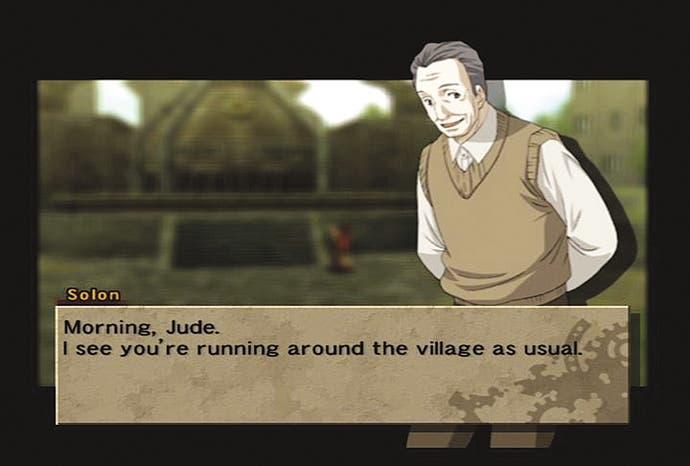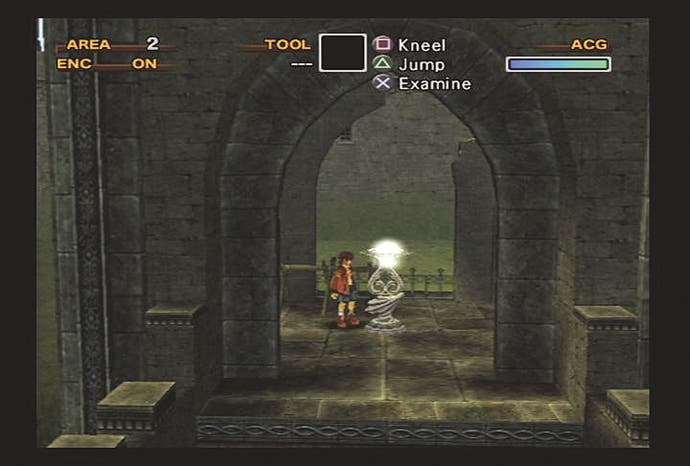Wild Arms 4
Flapping hopelessly.
The Wild Arms series is videogame beige. Viewed with a critical eye these are the blandest of RPG games, each barely characterised by unremarkable features, less-than-one dimensional characters, insipid storylines and unrelenting cliché.
Even viewed generously, the Wild Arms franchise avoids imagination and creativity at each turn in its embarrassing aping of Final Fantasy - a remarkable fact perhaps, but a far from interesting one. And viewed blindly, which is presumably how the swathes of fans that have promoted the brand to multi-million-seller look upon it, it's surely nothing more than a consistently average way to pass those time-rich teenage years.
And for this, the fourth game in the shuffling, near-pointless lineage, the series' one distinctive element, its wild west setting, is diluted beyond note, bringing the devolution of the Wild Arms concept to a most lacklustre conclusion before the game even starts.
Opening with the destruction of 13-year-old boy Jude's hometown village, an act which thrusts him into the spiky arms of an unfriendly and threatened world, Wild Arms 4's narrative pathway couldn't be deeper furrowed if it led straight from the shire to the gates of Mordor. Jude is immediately paired up with Yulie, a weak magic user you must protect that the empire wants to capture for secret and clearly-dastardly-but-not-in-that-way-you-filthy-reader reasons. Two other forgettable but clichéd supporting-cast members complete the set and it's business as it ever was.

The hotchpotch of ill-explored plot-ideas - each stolen from other myths and games - forms a most uneven and ill-fitting tapestry; one that an awkward translation of a clearly diabolical original script serves to cut into ugly ribbons. This is a serious problem, as the game is peculiarly verbose thanks the delivery of large chunks of back-story on screen as expansive portions of written disembodied text.
The vacuous moral of the story, punched through the player's head at every opportunity by ineloquent NPCs, is that childhood is a time of innocence, purity and goodness and adulthood a time of malevolence and evil. Such nonsense fails to move the player at every scene, and when characters repeatedly advise on a course of action and then act in the opposite way, it's never to make a point - but merely to serve a weak scriptwriter's ill-judged purpose.
The gameplay itself aims for higher innovation but without exception these feel like prematurely-birthed ideas. The battle system works on a rudimentary honeycomb system - seven hexagons upon which each all the units are placed - and boasts the bombastic moniker, the Hyper Evolve X-fire system. Unfortunately in practice it's less exciting. Some of the spaces have elemental properties (Ley Points) and most attacks can only be aimed at adjacent panels. Friendly units can't occupy the same space as enemy units, but more than one unit of the same side can - and as attacks are aimed at spaces rather than individuals, carefully bunching and dispersing characters is key to success. Despite the welcome invention, it's a limited system and besides, Strategy RPGs have been playing the same tricks but over whole map grid systems for twenty years. The overly-generous occurrence of random battles, their easiness and the sheer tediousness of the identikit opponents and their attacks soon drains any fun therein.

In another effort to add distinctiveness to the gameplay, developer XSEED has thrown in rudimentary platforming to the field sections of the game. Your lead character has a double jump, crouch and stomp move a la Klonoa and, in order to harvest each and every item the player must explore each environment using this set of tools. But the implementation of the idea is shoddy and bespeaks a developer trying moves outside of its limited repertoire - especially when compared to likes of, say, Threads of Fate, which tried similar RPG-crossover tricks to much better effect on the PSone. In fact, many sections of this part of the game feel plain amateurish, something exacerbated by the lack of invention in the key and fetch quests and intervening dialogue.
It would be easy to score this game as plain mediocre. After all, it essentially works, displays a misguided and seemingly half-hearted attempt at innovation, looks pleasant enough, passes the time and will likely meet the low expectations of its surprisingly large fanbase. But should such calculating mediocrity be continually excused? Perhaps it's time for the critical honesty this game continually calls for in its awkward and unstoppable meting out of prepubescent morality.

